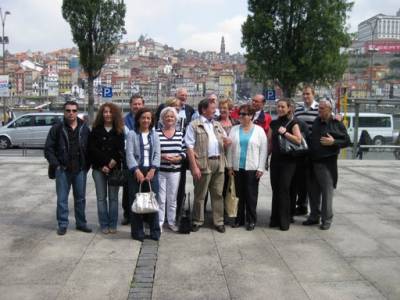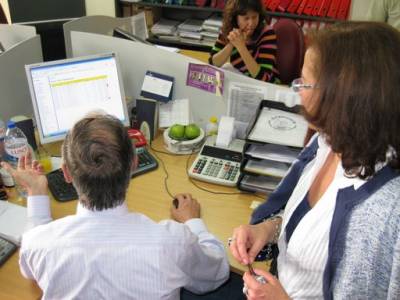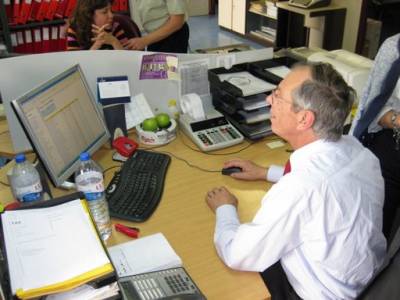Official Controls Veterinary Legislation
EU regulators check corporate conformity with agri-food chain rules. They regulate third-country animal and product imports into the EU (i.e. countries outside the EU), those that ship suppliers deliver to vessels. EU nations implement agri-food chain laws. Competent authorities set up official controls on their territory to ensure that operators' actions and items on the EU market (EU-produced or imported from non-EU countries) meet appropriate norms and regulations. All businesses must follow EU agri-food chain regulations, including ship suppliers. European ship suppliers import many goods from third countries to cater to the international crew onboard vessels. As such, OCEAN's members are affected by the European organisation of checks on meat and plant products entering the Union from third countries.
Why are Official Controls critical for the EU?
EU official control rules are essential to keep the agri-food chain in Europe safe. Ship suppliers deliver a diverse set of products, including all kinds of meats and meat products, to vessels calling EU ports, so we are directly concerned by the EU official control rules and have been for many years. The EU rules give national authorities the necessary powers to enforce the requirements. They also have specific mechanisms that ensure that European ship supply companies and all other stakeholders cooperate effectively in ensuring the correct application of the law across national borders. The Official Controls Regulation (EU) 2017/625, also known as the OCR or Official Controls Regulation, aims to address official controls and other official activities performed to ensure the application of food and feed law, rules on animal health and welfare, plant health and plant protection products. The new law required an extensive set of delegated and implementing acts, which affect ship stores in different ways. Overall, The scope of the regulation covers official controls to verify compliance with food and feed law, animal health and welfare, plant health and animal-by-products rules.
What is OCEAN's position regarding the EU regime of controls in general?
For OCEAN, it is vital to have in place flexible and straightforward legislation, notably where it concerns the working environment of our industry. When discussing with the EU Commission over the last years, we advocated that when designing the new law, the following elements had to be carefully considered as they directly impacted ship supply. These are legal provisions as regards
• the storage system
• control & monitoring system
• regime EU approved & for transit approved products
• supply vessels outside EU territory with a veterinary certificate
• issuing veterinary certificates and 100% warehouse (entrepot) exit control.
The more ship suppliers reduce risk, the more authorities should let us "get on with it."
Veterinary legislation is based on a risk-based approach to controls. Before authorities come to control the ship suppliers, they are asked to consider the operator's record of compliance and the reliability of the operator's checks, including those performed by the operator or performed by a third party at the operator's request, like in the case of private quality assurance schemes. This means that the more ship suppliers get our own "house into order," the more they should be able to avoid external controls and minimise the burden on our businesses.
However, it remains clear that all operators at all stages of production, processing, distribution and use of animals, goods, substances, materials, or objects governed by agri-food chain rules. This includes cold storage facilities for non-EU meat and meat products and measures we have taken to ensure that these non-EU foods do not accidentally enter the EU market (unless they meet EU rules and have been customs and health cleared correctly). Ship suppliers, during official controls, are required to assist and cooperate with the controller. More specifically, to the extent necessary to perform official controls, operators must provide access to Competent Authority staff to their:
• equipment,
• means of transport,
• premises,
• computers,
• documents and any other relevant information
• animals and animal goods under their control (like frozen non-EU meat).
Imports
The EU set up a common framework for carrying out border controls on animal and animal goods entering the EU.
"Usually, we have little to do with border controls on import, if we get the non-EU meat from the wholesaler. However, there are standard rules which apply to controls carried out at borders on animals and products of animal origin that must be checked before they enter the EU". Chair of the OCEAN Working Group of Veterinary Affairs, Max Geeratz, reflects on what the EU legislation on official controls means for the European Ship Supply Industry
The import control system is fully risk-based and targeted. Hence, ship suppliers hope that it is less burdensome for our business partners to import the meats. A list of animals and goods subject to systematic controls at the border has been established has been established by the EU Commission. Border Control Posts (BCPs) in the EU carry out border control tasks. Important to note is that all consignments to be presented at the border control posts must undergo documentary checks. Identity and physical examinations are carried out frequently, depending on the risk linked to the specific animals or goods. The EU established the criteria to determine and modify the frequency of checks. In principle, all controls must be carried out at the border control post where the consignment arrives, subject to some, rare exceptions. A standard document, the Common Health Entry Document (CHED), must be used by the importer for the prior notification of consignments. It is transmitted to the border control post through a new integrated computerised system for official controls. Members can find a model of the CHED-P, including a description of what should be filled in each box, in Regulation 2019/1715. The completion and submission of the documents is electronic. All existing computerised systems (TRACES, RASFF, Europhyt, AAC) to optimise the handling and exchange of information, data, and documents necessary for the enforcement of agri-food chain rules are integrated.
Transit
For ship chandlers, the rules for "official controls of animals and goods in transit, transhipment and onward transportation through the Union" are fundamental. They provide detailed instructions and rules on treating agri-food products in transit, whether approved for the European free market or for transit only. Consignments of products of animal origin, germinal products, animal by-products and their derived products as well as composite products are in scope. Their possible destinations, including non-EU-compliant food products, have been expanded (see Article 19 and following). In addition, these goods can now be directly re-exported to a specific destination outside the EU, like a special customs warehouse or a military basis from NATO or USA within the EU. Note that besides live animals and veterinary products, plants, and hay/straw/wood will also be subject to import controls (Control on imported wood in ship supply business usually means that if one receives products from 3rd countries on pallets or spare parts in crates, the wood should be free from pests. The most common proof is the 'ISPM-15 logos' showing a heat treatment.
As regards the Veterinary Certificate (VC), two changes are to be noted: It is still acting as a proof of delivery to the vessel or army base for ship suppliers and has received a new layout. The VC must be returned within 15 days, but besides the paper document, electronic proof of delivery on board is acceptable as long as the captain or his authorised representative signs it.



